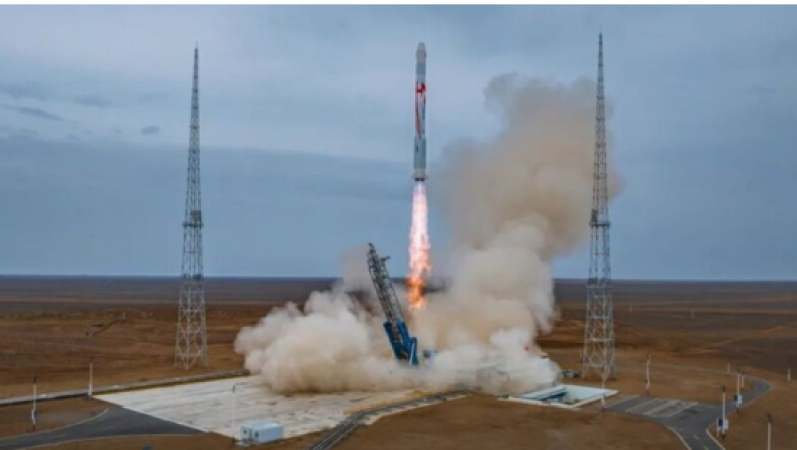
Beijing: On Wednesday, a private Chinese aerospace company outperformed rivals from around the world, including Elon Musk's SpaceX, by launching the first methane and liquid oxygen rocket into orbit.
The rocket, built by Beijing-based LandSpace, launched on Wednesday from Jiuquan Satellite Launch Centre in China's Gansu Province and successfully carried a test payload into orbit.
The Zhuque-2 carrier rocket was launched into orbit for 750 seconds, placing it 500 kilometres (310 miles) above the planet. The system, known as ZQ-2, uses the Tianque-12 methane and liquid oxygen engines, which are reportedly safer, less expensive, and more effective than other solid or liquid fuel alternatives. It can launch a maximum payload of six tonnes into low-Earth orbit.
Also Read: Near the Lebanon-Israel border, Hezbollah members are injured by Israeli fire
The ZQ-2 is a good option for a reusable system because it runs cleaner and requires less time to prepare and refuel the rocket.
The launch was prevented by a problem with the rocket's second stage in late 2022, which led to a failed attempt by LandSpace.
Relativity Space and SpaceX, two US-based businesses, are also developing methane propulsion systems. When Musk's Starship vehicle exploded minutes after takeoff during a test in April, it was a failure.
Also Read: Aid Stop, Conditions Worsen: Medical, Aid Orgs Fear for Northwest Syria
According to LandSpace's founder and CEO, Zhang Changwu, Wednesday's launch "has put China in the leading ranks of the global space race for methane-based rockets," and his business is currently preparing for another test. LandSpace will also begin a reusable rocket programme based on the Tianque-12, according to the CEO, with a 2025 launch target.
Also Read: UN Demands Greater Action to Combat Religious Intolerance in Wake of Quran Burnings
Beijing's public and private space programmes have made significant strides in recent years, with the China Manned Space Agency (CMSA) planning to launch the first module of its Tiangong space station into orbit in 2021 and a number of additional missions through 2024. By 2030, the organisation also intends to send astronauts to the Moon, according to CMSA engineer Zhang Hailian.
According to him, the Long March 10 liquid kerosene rocket, which is still in development, will be used for the mission and is anticipated to provide advantages comparable to those of the LandSpace methane system.